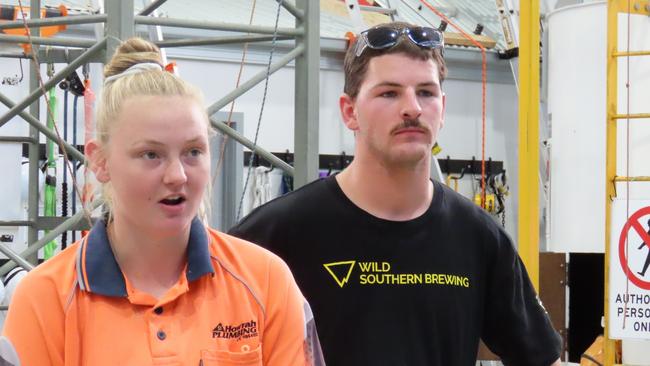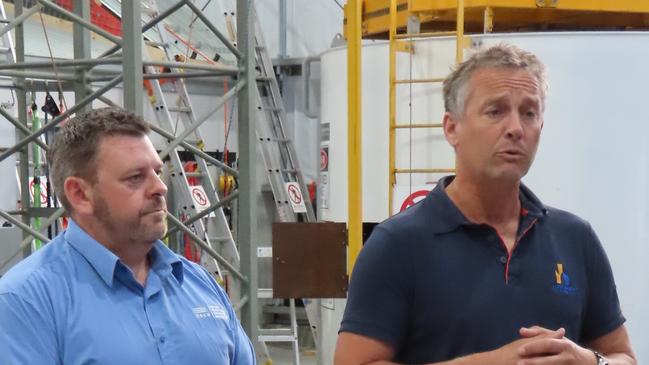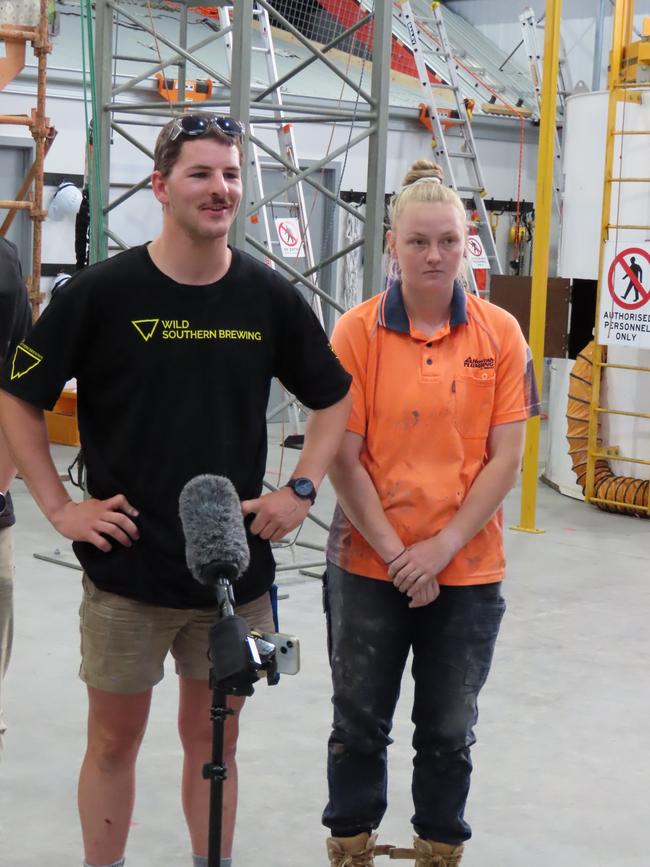Young Tasmanians urged to consider a career as a tradie
Tradies are urging school leavers to consider an alternative to studying at university. Here’s why the decision could set young Tasmanians up for life.

Tasmania
Don't miss out on the headlines from Tasmania. Followed categories will be added to My News.
Young people leaving school have been urged to consider a learning a trade rather than going to university.
With shortages of skilled workers affecting the state, the Master Builders Association has pointed out that on top of trades job being interesting, lucrative and in-demand, training is paid so there’s no HECS debt at the end.
Master Builders Tasmania CEO David Clerk said not only do first year apprentices earn up to $24 an hour from day one, but it would also set them up for life.

“We currently have a workforce of 29,000 across the state but to deliver on the $27 billion infrastructure pipeline over the next 10 years, we will need at least 40,000 tradies,” he said.
“Not only that, you will earn good money and get hands-on training in a supportive environment.
“Some university students will finish a four-year degree having racked up nearly $100,000 debt without getting any real experience working in the area they are studying.
“In the same time, most apprentice tradies would have earned up to nearly a quarter of a million dollars and completed an apprenticeship in a trade that will set them up for life.”
Newly-qualified apprentice Daniel Richardson said he decided on a trade early.
“It was in year 11 that I decided I want to do a trade, because I realised that sitting in the classroom wasn’t for me.
“It’s been a good way to get outside and meet people, enjoy yourself and make friends/
“And I’ve learned a life skill that I can inside or outside of work.
Apprentice plumber Halle Whitehead said she was enjoying the work.

“It has been really good. I am loving it. You do different things every day,” she said.
National Electrical and Communications Association State Manager Ben Shaw said his industry was crying out for workers.
“We are well short of our numbers in the electrical trade that we need to deliver the electrification of the nation.
“If you look at everything now, everything into the future is going to be electrified.
“So it’s one of the safest trades to get into, because there’s always going to be work there.”





